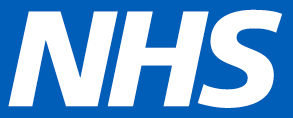In July, I had the honour of speaking to my analytical colleagues and leaders from across the UK at the Health and Analytics Conference (HACA) 2024. Standing at an international conference centre, I couldn't help but feel the weight of imposter syndrome. While my colleagues presented their groundbreaking work on analytical insights and techniques that are transforming health, care, and social systems, I was about to talk about myself—a daunting prospect.
But my nerves were soon calmed when Peter Spilsbury, Director of the Strategy Unit, opened the Welcome session with a quote from Thomas Telford: “I am not contented unless I can reason on every particular.” That resonated deeply with me. The relentless "But why?" and "I don’t understand," which I never grew out of, were some of the very traits that led me to seek an autism assessment. These traits, I realized, are also common among analysts.
It was a reassuring moment—I was on the right track. Even if not everyone related to my experiences as a neurodivergent individual, I knew that sharing my "Working with Me" document could help others reflect on how they work best. By understanding each other's preferences, we can all collaborate more effectively.
It's often joked that analysts rarely venture out of the basement. Yet, here we were, gathered for a two-day conference with a “networking” session thrown in. It was fantastic. I was inspired by the passion with which my colleagues shared their ideas for improvement and reached out to others for solutions. The open and honest atmosphere, where people felt comfortable discussing their worries, made the experience even better.
The organisers had thoughtfully considered how to make the event more accessible. Simple things, like providing a quiet space, sharing information ahead of time, offering support sessions for presenters, and providing various ways to attend and interact, made a big difference. Knowing whom to approach for additional support and how to contact them was also incredibly helpful.
Having the right support is so important. My presentation was supported by my manager, Kierstan, who played a crucial role in helping me convey my message effectively. Knowing that I had her support made the experience less intimidating and more empowering.
Communicating with others outside my comfort zone can be challenging. That's why creating and sharing a "Working with Me" document is such a powerful step toward embracing neurodiversity in professional settings. It fosters open dialogue about individual needs and preferences, leading to a more inclusive and supportive work environment.
At #HACA2024 and beyond, I hope to inspire others to consider how tools like this can enhance collaboration, productivity, and overall workplace satisfaction. When we take the time to understand and accommodate each other's needs, we create a more harmonious and effective work environment for everyone.
In conclusion, the "Working with Me" document is a simple yet powerful tool that helps me work more effectively and strengthens professional relationships. I look forward to continuing to collaborate in ways that respect and honour everyone’s diverse working styles.









